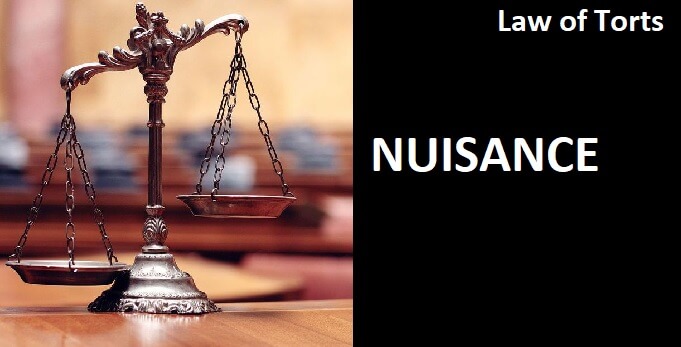By Mohamad Faris Haziq Bin Mohammed Shaharin
Nuisance is one of the most interesting topics under the law of torts. Nuisance frequently occurs within the society.
Surely there are sour moments in our life where we will feel infuriated by other peoples act which has clearly interfered with the rights to our land or even caused an excessive discomfort publicly.
I will be expounding briefly pertaining to the concept of ‘nuisance’ and recapitulating on recent cases associated with nuisance.
Nuisance is divided into two categories which are public nuisance and private nuisance.
Public nuisance is an interference with the rights of the society such as selling contaminated food. Public nuisance arose when an act materially affects the comfort and convenience of the life of a class of the society as stated in the case of Ranjan Paramalingam & Anor v Bangsar Park Residents Association [2021] MLJU 352.
The essential elements that are required to be proven is that the act must inflict inconvenience or injury to the life of a class of the society. To file a lawsuit under public nuisance, written permission from Attorney General must be obtained as stipulated under section 8(1) of the government proceedings act 1956. However, there are exceptions, if a person suffered special damage either personal injury or injury to property, the person instituting the claim would not require the consent of the Attorney General.
As stipulated under section 8(1) of the Local Government Act 1976, a local authority may as well institute a lawsuit without the consent of the Attorney General and act independently.
In contrast, private nuisance requires two elements to be proven which are substantial interference and unreasonableness. Substantial interference is an interference with his/her rights such as an interference with the enjoyment of their land, interference with the use of land and physical damage to the land.
Unreasonableness is a paramount factor whereas the person’s activities on their land constitute unreasonable and excessive in a particular society. Among the recent case of private nuisance is a case of Lai Kong Loke & Anor v Ting See Leng (2017) 7 MLJ 548, the defendant frequently parked his vehicle in front of the plaintiff’s house which has caused inconvenience towards them. The court held that the private nuisance has been established because the parking is illegal and it caused obstruction which directly creates a dangerous situation.
In another case of Wah Shen Development Sdn Bhd v Success Portfolio Sdn Bhd (2018), the plaintiff sued the defendant because the smell from the defendant’s pig farm which has adversely affected plaintiff’s sale of the house. The court allowed the plaintiff’s claim because the pig farm has emanated a strong stench which has reached the plaintiff’s farm.
To summarise, nuisance is not inconsequential but clearly an important topic to be comprehended by all levels of the society. You are not required to possess knowledge of law in order for you to institute a claim. Any unreasonableness and inconvenience above the ordinary comfort pave the way for nuisance.
Everyone has the right under the law. Any infringement of rights is indispensable to be presented before the court. Your rights are protected by the law. Federal Court judge in the case of Wah Shen Development Sdn Bhd stated that a little inconvenience cant be brought up, the inconvenience must be inevitable which materially interfered with their rights.***
